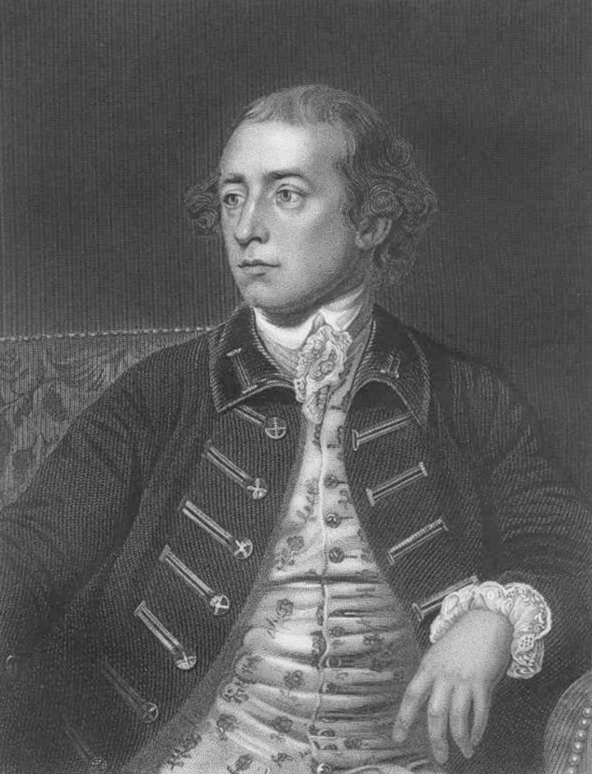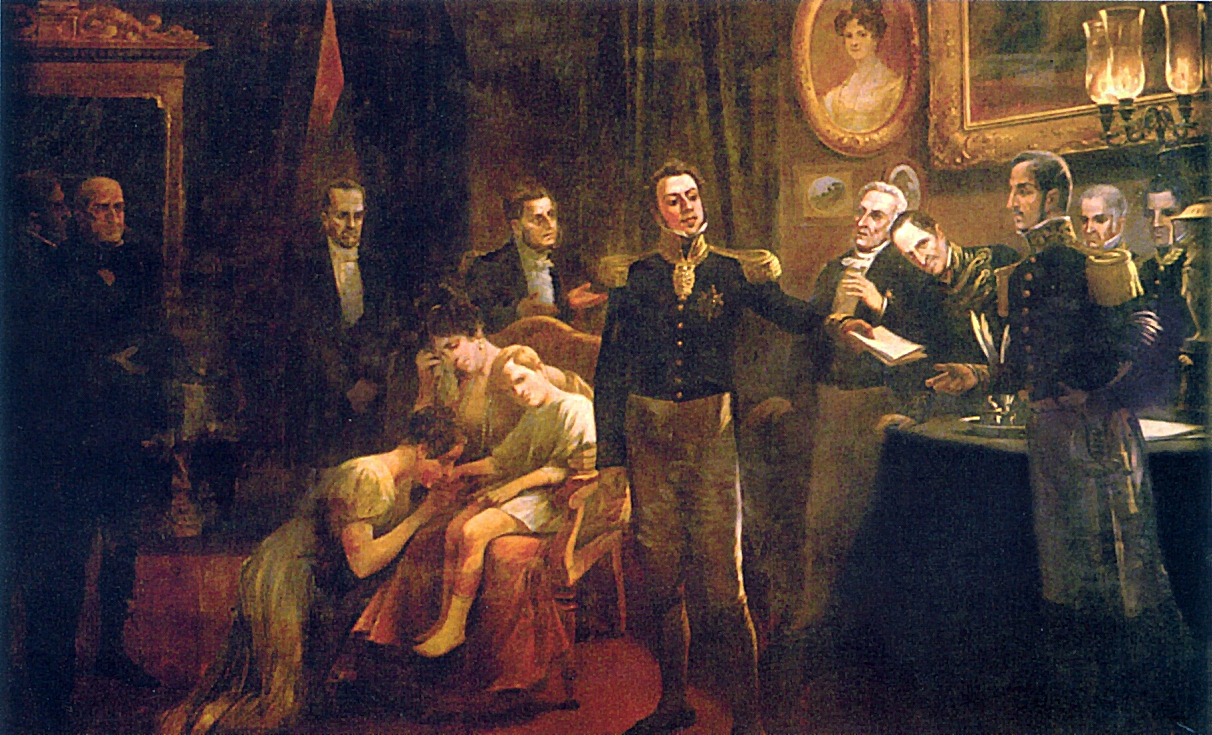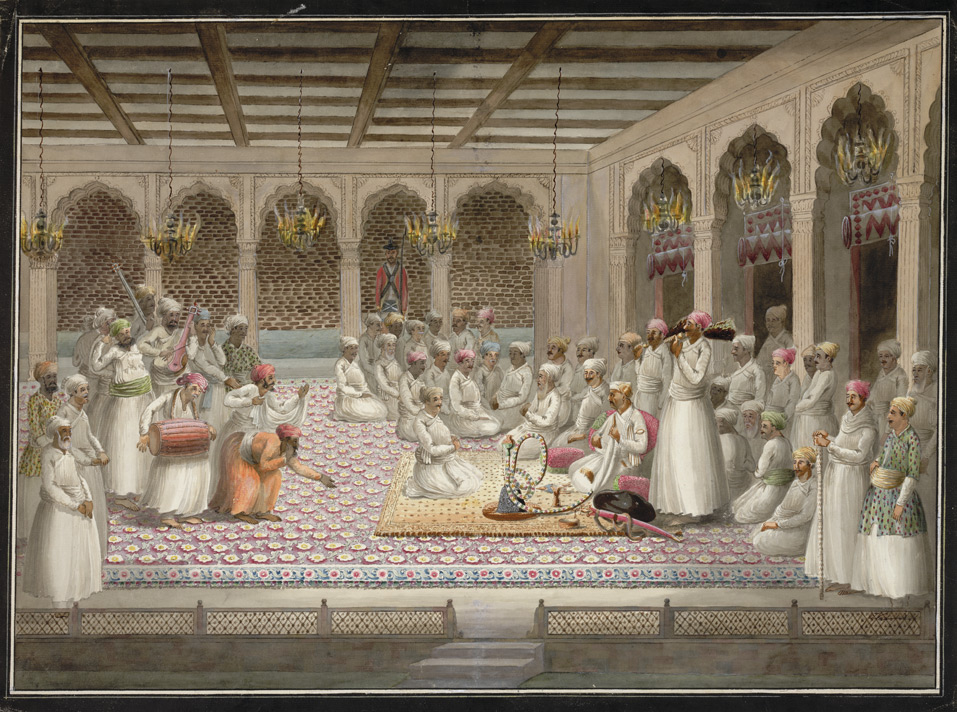|
Sidi Abdul Kadir Khan
Sidi Abdul Kadir Khan was the Nawab of Sachin from 1873 until his abdication in 1887. Biography Upon the death of his father, Ibrahim Muhammad Yakut Khan II, in 1873, he succeeded him as the Nawab of Sachin. Owing to his minority at the time of accession, the affairs of the state were placed under the supervision of the Agent to the Governor-General of India. Upon attaining majority in July 1886, he was invested with administrative powers. However, within the next six months, he proved to be unfit to rule and was asked to abdicate in favour of his eldest son, Ibrahim Muhammad Yakut Khan III, in 1887. In 1907, when his son was invested with full administrative powers, the kharita he received from the Governor-General of India The governor-general of India (1833 to 1950, from 1858 to 1947 the viceroy and governor-general of India, commonly shortened to viceroy of India) was the representative of the monarch of the United Kingdom in their capacity as the emperor o ... state ... [...More Info...] [...Related Items...] OR: [Wikipedia] [Google] [Baidu] |
Nawab
Nawab is a royal title indicating a ruler, often of a South Asian state, in many ways comparable to the Western title of Prince. The relationship of a Nawab to the Emperor of India has been compared to that of the Kingdom of Saxony, Kings of Saxony to the German Emperor. In earlier times the title was ratified and bestowed by the reigning Mughal emperor to semi-autonomous Muslim rulers of subdivisions or princely states in the Indian subcontinent loyal to the Mughal Empire, for example the Nawabs of Bengal. "Nawab" usually refers to males and literally means ''Viceroy''; the female equivalent is "Begum" or "''Nawab Begum''". The primary duty of a Nawab was to uphold the sovereignty of the Mughal emperor along with the administration of a certain province. The title of "nawabi" was also awarded as a personal distinction by the paramount power, similar to a British peerage, to persons and families who ruled a princely state for various services to the Government of British Raj ... [...More Info...] [...Related Items...] OR: [Wikipedia] [Google] [Baidu] |
Sachin State
The Sachin State (; ) was a princely state belonging to the Surat Agency, former Khandesh Agency, of the Bombay Presidency during the era of the British Raj. Its capital was in Sachin, the southernmost town of present-day Surat district of Gujarat State. History Maharaja of Parmar Rajputs had established the State of Sachin. Sachin state was invaded on 6 June 1791. Though over 85% of the subjects were Hindu, the state was ruled by Sunni Muslims of the Siddi dynasty of Danda-Rajpuri and Janjira State. The Siddi dynasty is of Abyssinian ( Habesha) origin. Sachin State was under the protection of the Maratha Peshwa until it became a British protectorate. It had its own cavalry, currency, and stamped paper, as well as a state band that included Africans. Fatma Begum (1892–1983), one of the early superstars of Hindi cinema and India's first female film director, was allegedly married to Nawab Sidi Ibrahim Muhammad Yakut Khan III of Sachin State. But Sachin royal family so ... [...More Info...] [...Related Items...] OR: [Wikipedia] [Google] [Baidu] |
Sidi Ibrahim Muhammad Yakut Khan III
Major Sidi Ibrahim Muhammad Yakut Khan III (Urdu: ; or Najaf Ali Khan) was the Nawab of Sachin from 1887 until his death in 1930. Biography He was born on 23 December 1886 to Abdul Kadir Khan. In January 1887, his father abdicated as the Nawab of Sachin in his favour, and he succeeded him on 7 February 1887. Due to his minority, the affairs of Sachin were placed under the administration of the British Government. He was brought up in infancy by a European lady Miss Rix. At the age of eleven, he was sent to Rajkumar College in Rajkot, where he remained until 1902, after which he was sent to Mayo College in Ajmer. In 1904, he entered the Imperial Cadet Corps and, after completing his course with a good conduct certificate in 1906, left the institution. Afterward, he became involved in the administration of Sachin to gain a clearer understanding of how the state's affairs were managed. He was invested with full administrative powers on 4 May 1907. On the same day, he was also ... [...More Info...] [...Related Items...] OR: [Wikipedia] [Google] [Baidu] |
Siddi
The Siddi (), also known as the Sheedi, Sidi, or Siddhi, are an ethno-religious group living mostly in Pakistan. Some Siddis also live in India. They are primarily descended from the Bantu peoples of the Zanj coast in Southeast Africa, most of whom came to the Indian subcontinent through the Indian Ocean slave trade. Others arrived as merchants, sailors, indentured servitude, indentured servants, and mercenaries. Etymology There are conflicting hypotheses on the origin of the name ''Siddi''. One theory is that the word derives from ''sahibi'', an Arabic term of respect in North Africa, similar to the word ''sahib'' in modern India and Pakistan. A second theory is that the term ''Siddi'' is derived from the title borne by the captains of the Arab vessels that first brought Siddi settlers to India; these captains were known as ''Sayyid''. A different name occasionally used for the Siddi is the term "Habshi". While originally used to refer specifically to the Habesha peoples, ... [...More Info...] [...Related Items...] OR: [Wikipedia] [Google] [Baidu] |
Governor-General Of India
The governor-general of India (1833 to 1950, from 1858 to 1947 the viceroy and governor-general of India, commonly shortened to viceroy of India) was the representative of the monarch of the United Kingdom in their capacity as the emperor or empress of India and after Indian independence in 1947, the representative of the monarch of India. The office was created in 1773, with the title of governor-general of the Presidency of Fort William. The officer had direct control only over his presidency but supervised other East India Company officials in India. Complete authority over all of British territory in the Indian subcontinent was granted in 1833, and the official came to be known as the governor-general of India. In 1858, because of the Indian Rebellion the previous year, the territories and assets of the East India Company came under the direct control of the British Crown; as a consequence, company rule in India was succeeded by the British Raj. The governor-general ( ... [...More Info...] [...Related Items...] OR: [Wikipedia] [Google] [Baidu] |
Abdication
Abdication is the act of formally relinquishing monarchical authority. Abdications have played various roles in the Order of succession, succession procedures of monarchies. While some cultures have viewed abdication as an extreme abandonment of duty, in other societies (such as pre-Meiji Restoration Japan), abdication was a regular event and helped maintain stability during political succession. Historically, abdications have occurred both by force (where the regnant was ''Dethronement, dethroned'', thus forced to abdicate on pain of death or other severe consequences) and voluntarily. Some rulers are deemed to have abdicated wiktionary:in absentia, ''in absentia'', vacating the physical throne and thus their position of power, although these judgements were generally pronounced by successors with vested interests in seeing the throne abdicated, and often without or despite the direct input of the abdicating monarch. Recently, due to the largely ceremonial nature of the regnan ... [...More Info...] [...Related Items...] OR: [Wikipedia] [Google] [Baidu] |
Year Of Birth Unknown
A year is a unit of time based on how long it takes the Earth to orbit the Sun. In scientific use, the tropical year (approximately 365 solar days, 5 hours, 48 minutes, 45 seconds) and the sidereal year (about 20 minutes longer) are more exact. The modern calendar year, as reckoned according to the Gregorian calendar, approximates the tropical year by using a system of leap years. The term 'year' is also used to indicate other periods of roughly similar duration, such as the lunar year (a roughly 354-day cycle of twelve of the Moon's phasessee lunar calendar), as well as periods loosely associated with the calendar or astronomical year, such as the seasonal year, the fiscal year, the academic year, etc. Due to the Earth's axial tilt, the course of a year sees the passing of the seasons, marked by changes in weather, the hours of daylight, and, consequently, vegetation and soil fertility. In temperate and subpolar regions around the planet, four seasons ar ... [...More Info...] [...Related Items...] OR: [Wikipedia] [Google] [Baidu] |
1896 Deaths
Events January * January 2 – The Jameson Raid comes to an end as Jameson surrenders to the Boers. * January 4 – Utah is admitted as the 45th U.S. state. * January 5 – An Austrian newspaper reports Wilhelm Röntgen's discovery, last November, of a type of electromagnetic radiation, later known as X-rays. * January 6 – Cecil Rhodes is forced to resign as Prime Minister of the Cape Colony, Cape of Good Hope for his involvement in the Jameson Raid. * January 7 – American culinary expert Fannie Farmer publishes her first cookbook. * January 12 – H. L. Smith takes the first X-ray photograph. * January 16 – Devonport High School for Boys is founded in Plymouth (England). * January 17 – Anglo-Ashanti wars#Fourth Anglo-Ashanti War (1895–1896), Fourth Anglo-Ashanti War: British British Army, redcoats enter the Ashanti people, Ashanti capital, Kumasi, and Asantehene Agyeman Prempeh I is deposed. * January 28 – Walter Arnold, of E ... [...More Info...] [...Related Items...] OR: [Wikipedia] [Google] [Baidu] |
Indian Muslims
Islam is India's second-largest religion, with 14.2% of the country's population, or approximately 172.2 million people, identifying as adherents of Islam in a 2011 census. India also has the third-largest number of Muslims in the world. The majority of India's Muslims are Sunni, with Shia making up around 15% of the Muslim population. Islam spread in Indian communities along the Arab coastal trade routes in Gujarat and in Malabar Coast shortly after the religion emerged in the Arabian Peninsula. Islam arrived in the inland of Indian subcontinent in the 7th century when the Arabs invaded and conquered Sindh and later arrived in Punjab and North India in the 12th century via the Ghaznavids and Ghurids conquest and has since become a part of India's religious and cultural heritage. The Barwada Mosque in Ghogha, Gujarat built before 623 CE, Cheraman Juma Mosque (629 CE) in Methala, Kerala and Palaiya Jumma Palli (or The Old Jumma Masjid, 628–630 CE) in Kilakarai, T ... [...More Info...] [...Related Items...] OR: [Wikipedia] [Google] [Baidu] |
Nawabs Of India
Nawab is a royal title indicating a ruler, often of a South Asian state, in many ways comparable to the Western title of Prince. The relationship of a Nawab to the Emperor of India has been compared to that of the Kings of Saxony to the German Emperor. In earlier times the title was ratified and bestowed by the reigning Mughal emperor to semi-autonomous Muslim rulers of subdivisions or princely states in the Indian subcontinent loyal to the Mughal Empire, for example the Nawabs of Bengal. "Nawab" usually refers to males and literally means ''Viceroy''; the female equivalent is "Begum" or "''Nawab Begum''". The primary duty of a Nawab was to uphold the sovereignty of the Mughal emperor along with the administration of a certain province. The title of "nawabi" was also awarded as a personal distinction by the paramount power, similar to a British peerage, to persons and families who ruled a princely state for various services to the Government of India. In some cases, the t ... [...More Info...] [...Related Items...] OR: [Wikipedia] [Google] [Baidu] |
People From Gujarat
The term "the people" refers to the public or common mass of people of a polity. As such it is a concept of human rights law, international law as well as constitutional law, particularly used for claims of popular sovereignty. In contrast, a people is any plurality of persons considered as a whole. Used in politics and law, the term "a people" refers to the collective or community of an ethnic group or nation. Concepts Legal Chapter One, Article One of the Charter of the United Nations states that "peoples" have the right to self-determination. Though the mere status as peoples and the right to self-determination, as for example in the case of Indigenous peoples (''peoples'', as in all groups of indigenous people, not merely all indigenous persons as in ''indigenous people''), does not automatically provide for independent sovereignty and therefore secession. Indeed, judge Ivor Jennings identified the inherent problems in the right of "peoples" to self-determination, as i ... [...More Info...] [...Related Items...] OR: [Wikipedia] [Google] [Baidu] |







